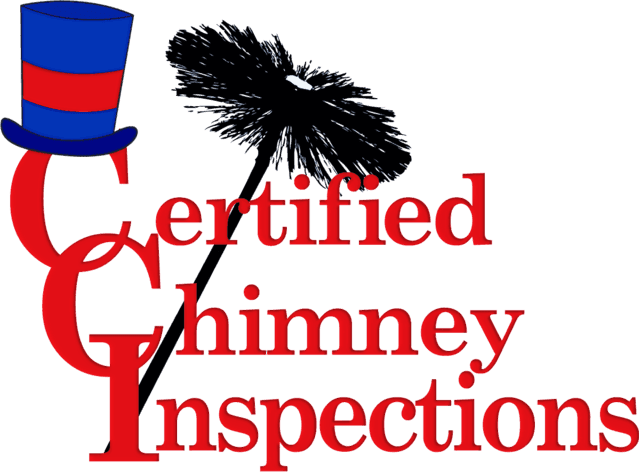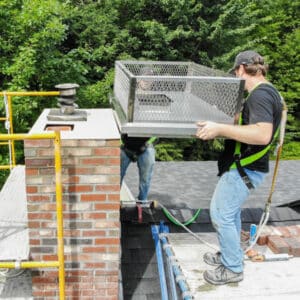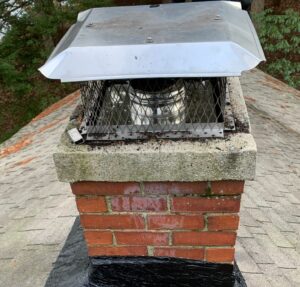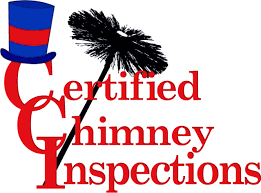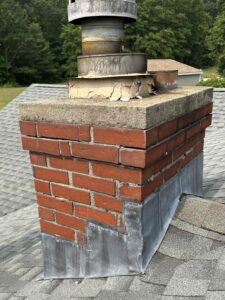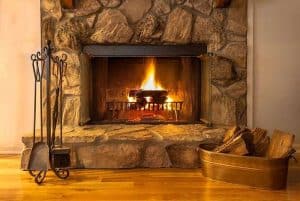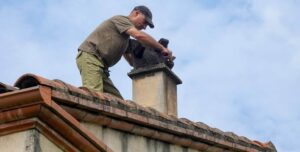In this comprehensive guide Certified Chimney Inspections, we will discuss the importance of Chimney Inspections, and why choosing a reputable company is crucial for your home’s safety and comfort. So, let’s dive in!
The Importance of Chimney Inspections
Chimney Inspections are an essential part of maintaining a safe and efficient fireplace system. Regularly scheduled inspections will catch chimney issues quicker. Issues like cracks, creosote buildup, or blocked flues that could lead to carbon monoxide poisoning and chimney fires. Ignoring proper chimney safety can lead to costly repairs or worse, damage to your health.
Here are some key reasons why you should have all chimneys and flues cleaned and inspected regularly:
- Safety: Ensuring that your chimney and fireplace are functioning correctly is extremely important. A damaged or poorly maintained chimney can cause house fires, carbon monoxide leaks, and other hazardous conditions.
- Efficiency: A well-maintained chimney and fireplace will operate more efficiently, leading to lower heating costs and increased comfort in your home.
- Preventative Maintenance: Regular chimney inspections can catch minor issues before they become significant problems, saving you time and money in the long run.
- Compliance with Local Regulations: Many municipalities require chimney inspections to comply with building codes and safety regulations. Failure to comply may result in fines or other penalties.
- Homeowner’s Insurance Requirements: Some insurance policies require regular chimney inspections to maintain coverage. Failing to do so could result in a voided policy or increased premiums.
- Environment: A clean and properly working chimney produces less carbon emissions keeping the air cleaner, protecting the environment, and reducing the effects of climate change.
The Three Levels of Chimney Inspections
Certified Chimney exceeds all industry-standard guidelines established by the Chimney Safety Institute of America (CSIA) National Fire Protection Association (NFPA) Standards for Chimneys, Fireplaces, Vents, and Solid Fuel-Burning Appliances) at no additional cost.
There are three levels of chimney inspections, each with a different scope and purpose set forth by the National Fire Protection Association.
Level 1 Chimney Inspection
A Level 1 inspection is the most basic and is typically performed as part of routine annual maintenance. During this inspection, the chimney technician will visually examine all accessible parts of the chimney, including the firebox, damper, smoke chamber, flue liner, and more. They will also check for any obstructions, such as bird nests or debris, that could restrict airflow and create a hazardous situation.
Level 2 Chimney Inspection
A Level 2 inspection is more in-depth and is required when changes have been made to the system, such as installing a new appliance or transfer/sale of property. This inspection includes everything from a Level 1 inspection, as well as an examination of the chimney’s exterior and any accessible portions of the attic, crawl space, or basement. A video camera may be used to inspect the interior of the flue liner for cracks or damage.
Level 3 Chimney Inspection
A Level 3 inspection is the most comprehensive and is typically reserved for situations where serious hazards are suspected or following a chimney fire. This inspection may require the removal of walls, masonry, or other components to access hidden areas of the chimney system. The goal of a Level 3 inspection is to identify and address any safety concerns to prevent further damage or risk to the home and its occupants.
A Chimney Inspection Will Reveal Whether or Not Your Chimney Requires A Cleaning or Repair
Most people who are asking for a chimney inspection will most likely also require a chimney cleaning. Chimney cleaning is just as important as a chimney inspection when it comes to safety and efficiency. A professional chimney service can remove soot build-up caused by burning wood. Left unattended, the build up will lead to an accumulation of highly combustible creosote inside the chimney over time. A properly maintained chimney and flue will help extend the overall lifespan.
Our company offers a free chimney inspection alongside every chimney service we provide!!
Call Certified Chimney Inspections at (844) 776-7933.
